| Listing 1 - 10 of 11 | << page >> |
Sort by
|
Book
ISBN: 1601290020 Year: 2001 Publisher: Santa Monica, CA : RAND Corporation,
Abstract | Keywords | Export | Availability | Bookmark
 Loading...
Loading...Choose an application
- Reference Manager
- EndNote
- RefWorks (Direct export to RefWorks)
A collection of discussion papers, prepared by RAND staff and others, that analyze the most critical foreign and national security issues facing the United States, both during the early days of the Bush administration and in the long term.
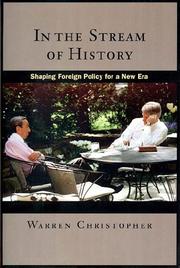
ISBN: 0804734682 0804732256 9780804732253 9780804734684 Year: 1998 Publisher: Stanford, Calif.: Stanford university press,
Abstract | Keywords | Export | Availability | Bookmark
 Loading...
Loading...Choose an application
- Reference Manager
- EndNote
- RefWorks (Direct export to RefWorks)

ISBN: 0812929136 9780812929133 Year: 1996 Publisher: Paris: Odile Jacob,
Abstract | Keywords | Export | Availability | Bookmark
 Loading...
Loading...Choose an application
- Reference Manager
- EndNote
- RefWorks (Direct export to RefWorks)
United States --- Politics and government --- Economic policy --- Social policy --- Foreign relations --- 1993-2001 --- United States - Politics and government - 1993-2001 --- United States - Economic policy - 1993-2001 --- United States - Social policy - 1993 --- -United States - Foreign relations - 1993-2001
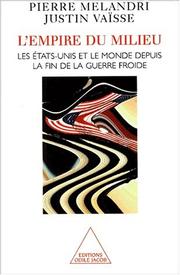
ISBN: 2738109985 9782738109989 Year: 2001 Publisher: Paris : Odile Jacob,
Abstract | Keywords | Export | Availability | Bookmark
 Loading...
Loading...Choose an application
- Reference Manager
- EndNote
- RefWorks (Direct export to RefWorks)
" Impossible de nier le rôle central que jouent les États-Unis, puissance authentiquement mondiale, cœur du système international. Ce pays a façonné le monde dans lequel nous vivons. Et il continuera de le faire des années encore. Donner une vision de ce que fut la politique étrangère américaine depuis la chute du mur de Berlin en essayant de ne négliger aucun épisode, aucun éclairage pouvant aider le lecteur à mieux juger : tel est le défi de cet ouvrage. On y verra notamment que l'Amérique n'est pas vraiment l'"hyperpuissance" que l'on croit. Faiblesses, insuffisances de moyens, contradictions et incohérences ont été nombreuses. C'est cette réalité que nous avons tenté de restituer. " P. M. et J. V.
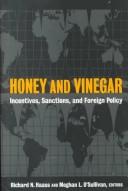
ISBN: 0815735669 0815735650 9780815735656 9780815735663 Year: 2000 Publisher: Washington, D.C.: Brookings Institution,
Abstract | Keywords | Export | Availability | Bookmark
 Loading...
Loading...Choose an application
- Reference Manager
- EndNote
- RefWorks (Direct export to RefWorks)
Government --- International relations. Foreign policy --- America --- International economic relations --- Internal politics --- Executive power --- United States. --- Powers and duties --- United States --- Foreign relations administration --- Foreign relations --- Decision making --- Executive power - United States --- United States - Foreign relations administration --- United States - Foreign relations - 1993-2001 - Decision making
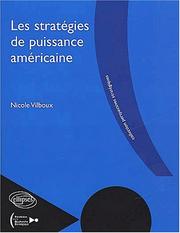
ISBN: 2729809643 9782729809645 Year: 2002 Publisher: Paris: Ellipses,
Abstract | Keywords | Export | Availability | Bookmark
 Loading...
Loading...Choose an application
- Reference Manager
- EndNote
- RefWorks (Direct export to RefWorks)
United States --- Etats-Unis --- Foreign policy --- Politics and government --- Politique étrangère --- Politique et gouvernement --- Military policy --- Armed Forces --- Foreign relations --- Politique étrangère --- United States - Military policy --- United States - Armed Forces --- United States - Foreign relations - 1989-1993 --- United States - Foreign relations - 1993-2001
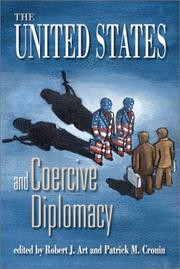
ISBN: 1929223447 1929223455 9781929223442 9781929223459 Year: 2003 Publisher: Washington: United States institute of peace,
Abstract | Keywords | Export | Availability | Bookmark
 Loading...
Loading...Choose an application
- Reference Manager
- EndNote
- RefWorks (Direct export to RefWorks)
With increasing frequency, US leaders look to achieve their foreign policy goals by marrying diplomacy to military muscle. Since the end of the Cold War, "coercive diplomacy" - the effort to change the behaviour of a target state or group through the threat or limited use of military force - has been used in no fewer than eight cases. But what, exactly, has the concept of coercive diplomacy meant in recent practice? What are coercive diplomacy's objectives? How does it operate? And how well does it work? To answer these questions, Robert Art and Patrick Cronin have enlisted a distinguished cast of scholars and practitioners to investigate the record of the past 12 years. Each author focuses on one of coercive diplomacy's recent targets, a remarkably diverse group ranging from North Korea to Serbia to the Taliban, from warlords to terrorists to regional superpowers. As Robert Art makes clear in a conclusion that will give scholars food for thought and policymakers reason to pause, those results have been mixed at best. Art dissects the uneven performance of coercive diplomacy and explains why it has sometimes worked and why it has more often failed.
823 Diplomatie --- #SBIB:054.AANKOOP --- #SBIB:327H15 --- #SBIB:328H31 --- Buitenlandse politiek: Noord-Amerika --- Instellingen en beleid: VSA / USA --- Aggression (International law)United StatesForeign relations --- International relations. Foreign policy --- United States --- Diplomacy --- Aggression (International law) --- Foreign relations --- History --- International relations --- International law --- United States - Foreign relations - 1993-2001 --- United States of America
Book
ISSN: 26800586 ISBN: 9782343177342 2343177341 Year: 2019 Publisher: Paris: L'Harmattan,
Abstract | Keywords | Export | Availability | Bookmark
 Loading...
Loading...Choose an application
- Reference Manager
- EndNote
- RefWorks (Direct export to RefWorks)
"Les manquements américains au Rwanda à la veille du génocide de 1994 ne s'analysent pas sans tenir compte du poids des éléments du contexte géostratégique et géopolitique du moment. Ce livre part de la primauté des intérêts diplomatiques en Afrique, qui marqua l'implantation géographique des Américains et des Soviétiques sur le continent, pour montrer que, pendant la guerre froide, ce positionnement déboucha, en Afrique du centre, sur la crise des frontières entre les deux hyperpuissances. En 1986, le dégel Est-Ouest modifia considérablement la cartographie, la structure et la caractérisation des conflits inter et infra-étatiques : le symptôme en est la Somalie des seigneurs de guerre, où s'embourba l'armée américaine en 1993. L'époque offre des opportunités de délitements sociopolitiques : le Rwanda est le syndrome d'une époque nouvelle où de vieux conflits identitaires internes se réveillent. L'opposition ethnicisée des Tutsi et des Hutu, ouverte par la révolution de 1959, gagne en intensité, débouchant sur la guerre civile (1990-1993) et le génocide (1994). La diplomatie américaine est devenue frileuse et cynique face à un monde désormais illisible, aidée en cela par les incertitudes de la géopolitique des Grands Lacs, où le pivot ougandais a pris une importance stratégique majeure. Depuis le génocide, les péripéties de la diplomatie américaine face au président Kagamé et aux soubresauts de la zone sont toujours confuses et floues."--Page 4 of cover.
United States --- Rwanda --- Foreign relations --- History --- International relations. Foreign policy --- anno 1990-1999 --- United States - Foreign relations - Rwanda --- Rwanda - Foreign relations - United States --- Rwanda - History - Civil War, 1990-1993 --- United States - Foreign relations - 1989-1993 --- United States - Foreign relations - 1993-2001 --- United States of America
Book
ISBN: 1336211288 1472524276 1472533224 1472529707 1472528786 9781472528780 9781472529701 9781472533227 Year: 2015 Publisher: London : Bloomsbury,
Abstract | Keywords | Export | Availability | Bookmark
 Loading...
Loading...Choose an application
- Reference Manager
- EndNote
- RefWorks (Direct export to RefWorks)
"President Clinton's time in office coincided with historic global events following the end of the Cold War. The collapse of Communism called for a new US Grand Strategy to address the emerging geopolitical era that brought upheavals in Somalia and the Balkans, economic challenges in Mexico and Europe and the emergence of new entities such as the EU, NAFTA and the WTO. Clinton's handling of these events was crucial to the development of world politics at the dawn of the twenty-first century. Only by understanding Clinton's efforts to address the challenges of the post-Cold War era can we understand the strategies of his immediate successors, George W. Bush and Barack Obama, both of whom inherited and continued Clinton-era policies and practices. James D. Boys sheds new light on the evolution and execution of US Grand Strategy from 1993 to 2001. He explores the manner in which policy was devised and examines the actors responsible for its development, including Bill Clinton, Anthony Lake, Samuel Berger, Warren Christopher, Madeline Albright and Richard Holbrook. He examines the core components of the strategy (National Security, Prosperity Promotion and Democracy Promotion) and how they were implemented, revealing a hitherto unexplored continuity from campaign trail to the White House. Covering the entire duration of Clinton's presidential odyssey, from his 1991 Announcement Speech to his final day in office, the book draws extensively on newly declassified primary materials and interviews by the author with key members of the Clinton administration to reveal for the first time the development and implementation of US Grand Strategy from deep within the West Wing of the Clinton White House."--Bloomsbury Publishing.
Clinton, Bill, -- 1946-. --- Post-communism. --- United States -- Foreign relations -- 1993-2001. --- World politics -- 1989-. --- Regions & Countries - Americas --- History & Archaeology --- United States - General --- World politics --- Clinton, Bill, --- United States --- Foreign relations --- Clinton, William J. --- Clinton, William Jefferson, --- Blythe, William Jefferson, --- Klintūn, Bīl, --- Ḳlinṭon, Bil, --- Klinton, Bill, --- Klinton, Uilʹi︠a︡m Dzhefferson, --- Kelindun, --- Клинтон, Билл, --- קלינטון, ביל, --- كلينتون، بيل، --- クリントン, ビル, --- Kurinton, Biru, --- Postcommunism --- Communism --- Foreign economic relations. --- Military policy.
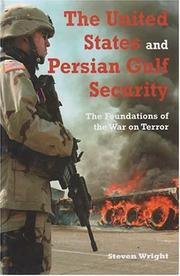
ISBN: 9780863723216 0863723217 Year: 2007 Publisher: Reading: Ithaca press,
Abstract | Keywords | Export | Availability | Bookmark
 Loading...
Loading...Choose an application
- Reference Manager
- EndNote
- RefWorks (Direct export to RefWorks)
The international relations of the Persian Gulf have long been dominated by power politics. Its unrivalled energy resources have historically made this geopolitical arena a vital national security interest for the United States. Historically, Persian Gulf security became synonymous with the maintenance of the political status quo, but with the onset of the War on Terror, US foreign policy has shifted in priority towards combatting the root causes of Islamic extremism. The age-old policy of maintaining stability to ensure a free and secure flow of energy is now recognized as having fuelled Islamic extremism. The new strategic objective for the United States is to see a complete overhaul of the political systems within the region and to develop a culture of political participation to achieve regional security and ensure US homeland security. It is a new agenda wholly in keeping with the messianic Wilsonian values that have long been part of US foreign policy. The purpose of this book is to offer a detailed analysis of US foreign policy towards Iran and Iraq since the onset of the post-Cold War era and to chart its developments and changes right through to the contemporary period of the War on Terror epitomized by the Presidency of George W. Bush. It also provides a detailed examination of US foreign policy towards political Islam to show why and how US strategic interests have so fundamentally changed since the trauma of the 9/11 attacks. Written in a clear and accessible style, the book is sure to prove invaluable for students, policymakers, and the general reader interested in the politics and security of this highly important but volatile region of the Middle East.
GWOT, 2001-2009 (War on Terrorism) --- Global War on Terror, 2001-2009 --- Guerre contre le terrorisme, 2001-2009 --- Oorlog tegen het terrorisme, 2001-2009 --- War against Terrorism, 2001-2009 --- War on Terror, 2001-2009 --- War on Terrorism, 2001-2009 --- Persian Gulf Region --- United States --- Iraq --- Iran --- Foreign relations --- 1993-2001 --- 2001-2009 --- Persian Gulf Region - Foreign relations - United States --- United States - Foreign relations - Persian Gulf Region --- United States - Foreign relations - 1993-2001 --- United States - Foreign relations - 2001 --- -United States - Foreign relations - Iraq --- United States - Foreign relations - Iran --- Iraq - Foreign relations - United States --- Iran - Foreign relations - United States
| Listing 1 - 10 of 11 | << page >> |
Sort by
|

 Search
Search Feedback
Feedback About UniCat
About UniCat  Help
Help News
News